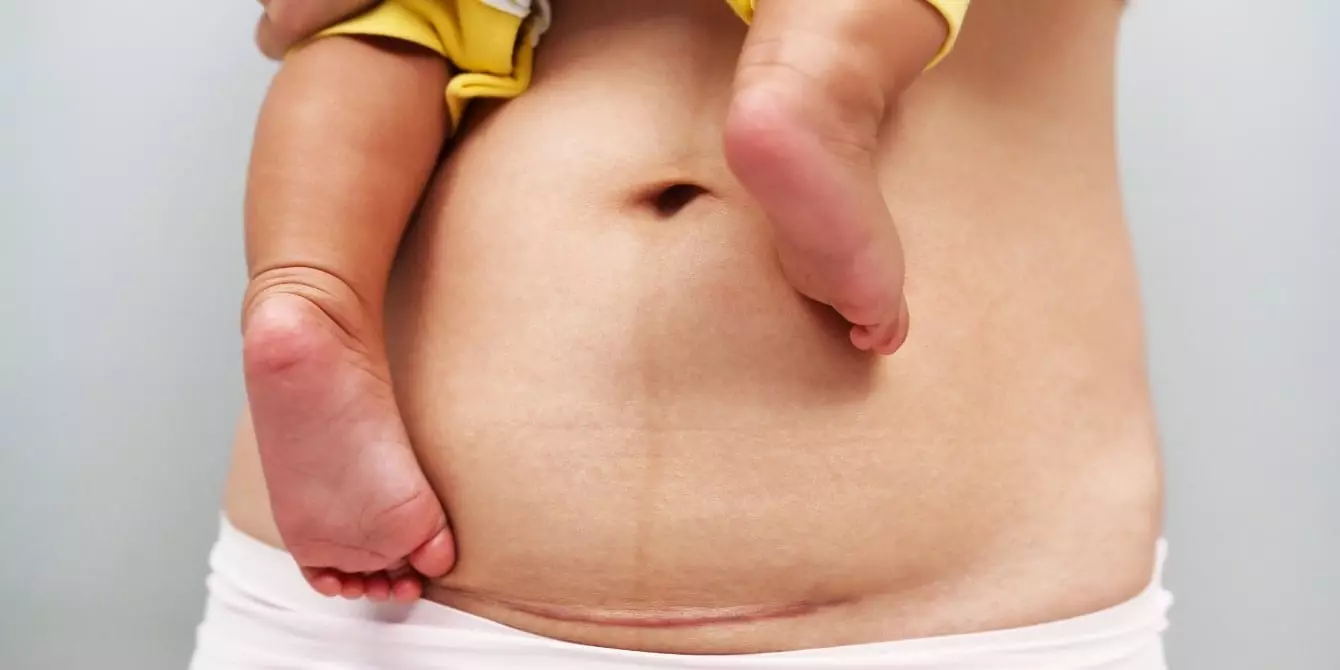Giving birth is often glamorized as a powerful experience, overflowing with joy and fulfillment. However, beneath that often rosy depiction, lies a myriad of personal stories that reflect both the triumphs and challenges of motherhood. One of the most profound aspects of this journey is the physical and emotional aftermath of childbirth, particularly when that experience diverges from expectations. For many, a C-section scar becomes a potent symbol of both love and loss, pride and pain. This is a reflection on the intricate relationship with my own C-section scar, the embodiment of a birth experience that was not as I envisioned.
The Weight of a Decision
Deciding on a C-section is not merely a logistical choice; it is laden with morality, implications, and a torrent of emotions. The weight of the doctor’s words echoed through my mind: “Possible partial molar pregnancy. Higher chances of excessive bleeding.” Faced with a potentially hazardous scenario, I felt compelled to make a decision that left me feeling stranded in a sea of uncertainty and vulnerability. The peaceful image of a smooth vaginal birth slipped through my fingers, replaced by the intimidating prospect of surgery. Like many, I found it easier for friends and family to voice opinions on the ease of such a choice, entirely ignorant of the emotional turmoil I wrestled with while lying on the operating table. The perceived simplicity of scheduling a C-section belied the reality of grappling with your own vulnerability in a sterile, cold environment.
The Aftermath of Birth
The postnatal period can be an emotional minefield, and for me, my C-section scar was both an anchor and a weight. Mullings of pain and feelings of inadequacy confounded my joy. The inability to hold my newborn immediately after birth felt inherently wrong, complicating the maternal bond I yearned to build. As I moved gingerly through my home in discomfort, each pang served as a reminder that I had lost control—not just of my body but of the experience I had anticipated.
My heart sank at my toddler’s attempts to reach for me, amplifying my guilt as he tugged at my heartstrings. The blossoming relationship I had hoped to nurture with my new child felt overshadowed by an overwhelming sense of national pain and helplessness. The harsh reality of C-section recovery—it’s not just physical; it’s deeply emotional and psychological. One’s identity as a mother can be marred by feelings of helplessness and anger; resentment against the scar formed an undercurrent of my post-birth identity.
As I navigated the turbulent waters of recovery, I consistently brushed with the ideals set forth in society, often reflected back to me through social media. The sea of glossy images and vibrant stories made me question my own reality. I stumbled into the realm of online parenting communities searching for validation and advice, where anecdotes often blurred the lines between empowerment and envy. Friends spoke of their own scars as beautiful badges of honor—their bodies transforming to accommodate the miracle of life. Yet, I couldn’t shake the feeling of being left behind, of being marked in a way that felt alien to me.
In moments of isolation, I visualized my scar as a wound—an ugly disruption to the narrative of motherhood I had so fervently cherished. The advice I received varied immensely: massage the scar, wear high-waisted garments, accept the discomfort because “it’s all part of the journey.” While some perspectives celebrated the scar as part of one’s personal history, for me, it felt like an unwelcome intrusion into the fabric of my motherhood—a permanent reminder of a birth gone differently than planned.
Nonetheless, with time, a transformation commenced. As I ventured further into the realm of self-acceptance, my perception of the scar began to shift. It no longer felt like just a haunting reminder of inadequacies but grew into a symbol of resilience. I started recognizing it not merely as a mark but as a manifestation of the incredible journey my body underwent. I became grateful for my scar, embracing it as a testimony to my strength and ability to endure.
In mirrors, I began to see more than just a discolored line; I recognized a narrative containing my struggles, combats, and triumphs. Each time I touched that raised surface, I began to feel not just the tension of a scar but the lesson it held—the strength of my body, the miracle of life I carried, and the love for my son etched into every fiber of my being.
In the end, the ambivalence of my emotions towards my C-section scar lives on. I inhabit both gratitude and resentment, love and frustration, as I navigate the complexities of this story. I accept my scar as part of a broader narrative—one that underscores the truth of motherhood’s challenges and its profound joys. The C-section scar that initially symbolized my loss of control has morphed into a testament of both my journey and the unbreakable bond I share with my son.
This duality encapsulates the essence of motherhood—a journey fraught with unexpected turns, embracing both beauty and hardship. Through acknowledging and voicing these sentiments, I no longer feel ashamed of my experience. Instead, I stand, scar and all, united with countless others sharing their own stories of love, loss, and the patchwork of emotions that accompany the transformative journey of motherhood.

